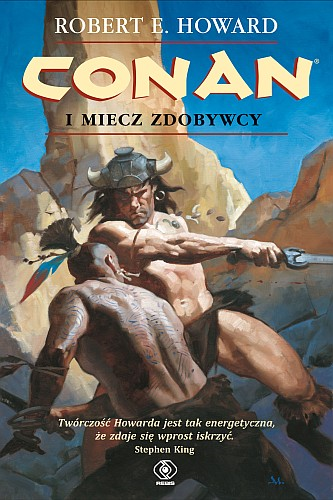
"Not because I have any love for you dogs, but because a white man doesn't leave white men, even his enemies, to be butchered by Picts." Also, a child is whipped and called "slut" during the abuse and again afterwards. 159) "But I'm not going to do that!" Conan roared. Telling the story through Balthus's eyes was effective even though he was brawny and a woodsman, he of course could not compare to the panther-like Conan's stealth and instincts. Of course Conan is a barbarian and everyone benefits from his nature in this situation, but he's the white kind of barbarian, not like those Picts in the jungle, who the text takes the time to state are not Black, but sufficiently dark-skinned that they are mere savages, not like the noble savage of Conan's ilk. The primary theme is the clash between barbarism and civilization.

I found the prose less poetic and more purple in places than in Howard's earlier stories.īeyond the Black River: A very good story if you can ignore the racism, which is a big ask. And we're supposed to be impressed when, without hesitation, he gives up the fortune of ten lifetimes to save her.

Conan, in the process of rescuing her, calls her variously "slut," "trollop," "hussy," and worst of all, "actress". As usual, there is exactly one female character. It is definitely the most sexist Howard Conan story to date. The Servants of Bit-Yakin: A multi-layered backstory supports this story, in which a mid-career Conan (post-piracy, but pre-kingship) attempts to solve multiple mysteries affecting his scheme to retrieve a fabled treasure from a long-abandoned temple, isolated from the world in the middle of a huge crater surrounded by dense jungle. Was I simply less sensitive to it previously, or did Howard increasingly let it all hang out over time? I suspect the latter.

The stories in the prior volumes of this complete, writing-order collection of Howard's Conan stories struck me as significantly more openly racist and sexist than the prior ones.

Presenting the last of Howard's original Conan stories, from Hyborian lands long, long ago, before "clothing for women" was a thing, these tales are so good.


 0 kommentar(er)
0 kommentar(er)
